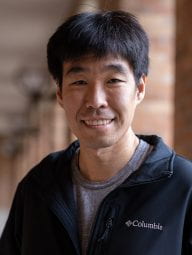
Abstract: To integrate the growing amount of renewable resources in the grid, power system operation problems are increasing in size and complexity. In recent years, machine learning or AI-based approaches have gained significant attention both in academia and industry. A main challenge in adopting these algorithms arises from the constraints in power system problems, which are hard limits that must be satisfied at all times. Tools like neural networks, can limit their outputs to be in simple regions, but there is no obvious way of forcing complex constraint satisfaction at the output. In this talk, we show a neural network architecture that guarantees constraint satisfaction by construction, without relying on steps like projections. By exploring the interior of the feasible set, we demonstrate improved efficiency and closed-loop performance for optimal power flow and model predictive control problems.
Bio: Baosen Zhang is currently the Keith and Nancy Endowed Career Development Professor in Electrical and Computer Engineering at the University of Washington, Seattle, WA. He received his Bachelor of Applied Science in Engineering Science degree from the University of Toronto in 2008; and his PhD degree in Electrical Engineering and Computer Sciences from University of California, Berkeley in 2013. He was a Postdoctoral Scholar at Stanford University. His research interests are in control, optimization and learning applied to power and energy systems. He received the NSF CAREER award as well as several best paper awards.
